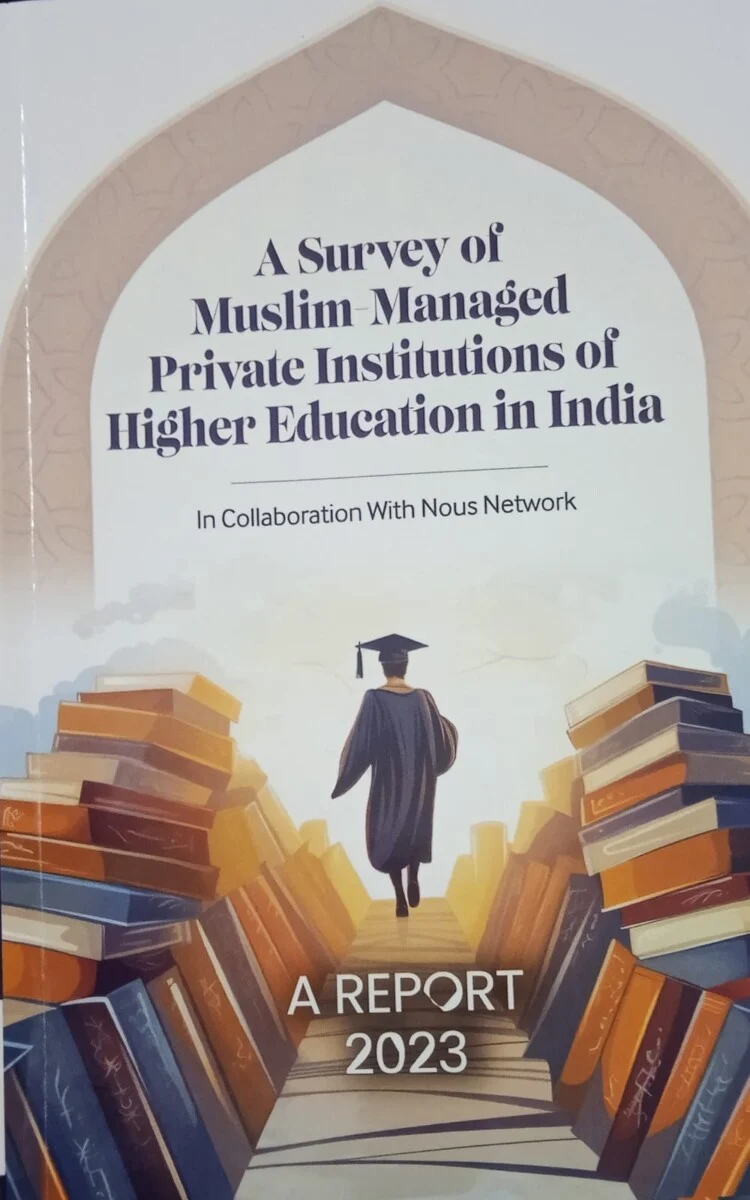Anwarulhaq
New Delhi, February 9, 2024: A recently compiled report by the Centre for Study and Research (CSR) in New Delhi has unveiled striking facts about the state of Muslim-managed higher education institutions in India. The report, titled “A Survey of Muslim-Managed Private Institutions of Higher Education in India,” provides a comprehensive analysis of universities and colleges, their distribution, enrollment patterns, and quality assessment. Jamaat-e-Islami Hind President Syed Sadatullah Husaini recently released the report.
Dr. Mohammad Rizwan, Director of CSR, has stated that the comprehensive report, “A Survey of Muslim-Managed Private Institutions of Higher Education in India,” provides insights into the state of higher education institutions managed either by Muslim societies and trusts or that have evolved under the care of government agencies. This report is part of a series mapping the educational landscape of the Indian Muslim community and was prepared in collaboration with the NOUS Network.
no such study has been conducted to date, and there is currently no data available on number of institutions for higher education affiliated with Muslim minority
Claiming it as a first-of-its-kind study to fill a crucial gap in understanding the landscape of Muslim educational access and participation, Dr. Rizwan says, “To our knowledge, no such study has been conducted to date, and there is currently no data available on the number of institutions for higher education affiliated with the Muslim minority group.”
Universities:
Out of the total 1,113 universities in India, 23 are Muslim minority institutions, with Uttar Pradesh leading in numbers, followed by Karnataka. The majority (43.5%) are privately managed, and nearly 70% are located in urban areas.
Enrollment Patterns:
Of the 97,928 students enrolled in the academic year 2021-22, 42.1% are Muslims. Among Muslim students, 63.09% are male and 36.91% are female. Representation from Scheduled Tribes is less than 1%, while 29.37% belong to Other Backward Classes.
Colleges:
Out of 43,796 colleges, 1,155 are managed by the Muslim minority community. Kerala, Uttar Pradesh, and Maharashtra top the list in terms of the number of colleges.
Enrollment Patterns:
Among the 524,441 students enrolled, 42.1% are Muslims. Female enrollment among Muslim students is higher across various programs compared to male students.
Muslim representation in higher education
Despite comprising 14% of India’s population, the report highlights that Muslim representation in higher education is only 4.9%. The study aims to address the underrepresentation of Muslims in higher education and provides valuable insights into the state of Muslim-managed institutions.
Key Findings:
According to the report, 52.7 per cent of students in the Muslim-run institutions are Hindus and only 42.1 per cent of students are Muslims.
The number of Muslim universities and colleges has increased over the decades, with a noticeable growth in the 2001-2010 period.
Muslim students predominantly opt for undergraduate programs (90.6%), while the representation in M.Phil. and Ph.D. programs is low. Female students outnumber male students across religious communities.
A significant number of institutions did not participate in quality assessment processes like NAAC accreditation and NIRF ranking. Only 21.7% of universities achieved the A+ grade, and only 3.1% of colleges participated in the NIRF ranking of 2023.
The underrepresentation of Muslims in higher education, particularly in research-oriented courses, has serious implications for socio-economic progress and overall national development.
The study utilized a rigorous mechanism to list institutions affiliated with the Muslim minority, including data from AICTE, AISHE, NCMEI, and a Google Form. Student enrollment data was obtained from AISHE, and research-related information was collected from NAAC and individual institutions through RTI requests. This groundbreaking report highlights the challenges faced by Muslim-managed higher education institutions in India and calls for urgent attention to address the underrepresentation of Muslim students. The findings underscore the need for inclusive policies to ensure equitable access to quality education for all communities.

